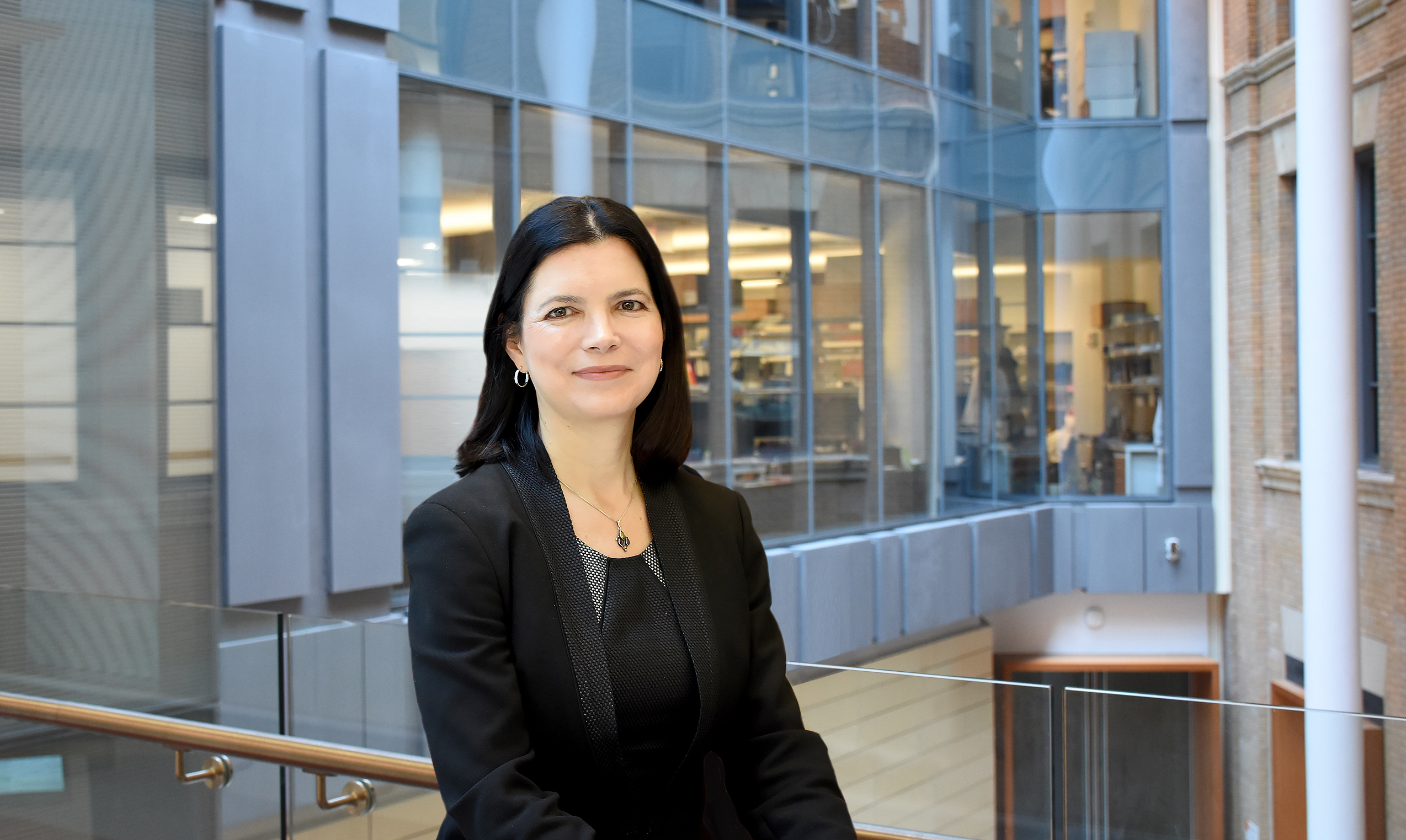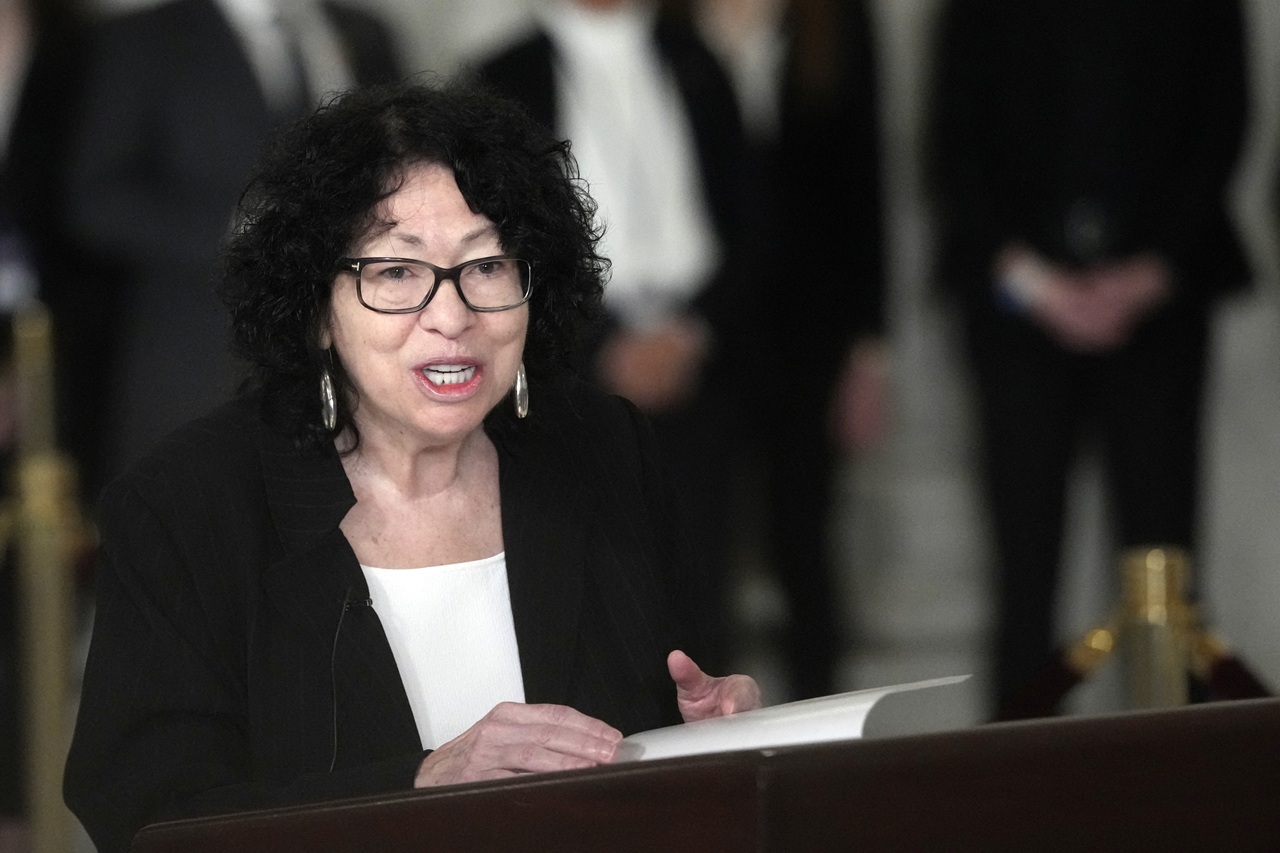
The Latina lawyer opening doors of diversity in the field, while tackling the intersection between law and health
The law profession is one in which Latinos are very underrepresented.
Despite making up nearly one-fifth of the population in the United States, Latinos only make up about 4% of the legal field. For Latinas, the number is cut in half to about 2%.
Gelvina Rodriguez Stevenson is one Latina lawyer who has set out to provide avenues for others in the Hispanic community to enter into the legal profession.
The child of a Puerto Rican mother and American father who is also a registered member of the Cherokee Nation, Rodriguez Stevenson has spent her life immersing herself into her heritage and helping her community transcend stereotypes.
Growing up in a very diverse community in the South Bronx, Spanish was her first language as she attended Catholic school throughout the majority of her educational journey.
While living in the Bronx, she and her family would frequently visit their extended family in both Missouri and Puerto Rico — often spending summers there.
The experience helped her learn to adapt to different environments.
A Glaring Discovery
When it was time to select a college, Rodriguez Stevenson decided to attend the New York University College of Arts and Sciences, where she studied comparative literature.
After working for a couple years, she decided to further her education — this time in law school.
As the daughter of two parents who were social activists, Rodriguez Stevenson wanted to find a way to give back to her community, and thought law was an effective way to do it.
For this, she returned to NYU, where she would later earn a joint degree — a juris doctor in law and a master’s degree — in public policy,
Always involved with the Latino Student Association as an undergraduate, she noticed a glaring difference during her law school experience.
“I felt like I was maybe one of five Latinx students in law school, so I always spent a lot of my time trying to find my people and my community,” said Rodriguez Stevenson in an interview with AL DÍA.
Early on, she often felt intimidated that she didn’t have anyone she could connect with.
Rodriguez Stevenson would later discover an NYU Law alumni association, now called the Law Alumni of Color Association (LACA).
There, she learned there was a much greater group of individuals of Latinx descent who had graduated from NYU Law School, but not without their own challenges of underrepresentation within the program.
“That, to me, was so essential in just getting through law school, knowing that other people like me have made it,” said Rodriguez Stevenson.
It became clear to her the importance of mentorship and building a strong network and community when navigating these waters.
This is where her advocacy work began, as she got involved with the Latino Law Students Association, eventually becoming its chair.
Finding Her Passions
After earning her law and policy degrees, Rodriguez Stevenson spent a couple years in corporate finance law as an associate, and then clerked for a judge on the US District Court for the Central District of California.
As she was figuring out what she wanted to do, she later got a job at New York City Council, the legislative branch of NYC government, and was assigned to the health law committee.
“I thought, ‘This is so important because these local laws that were passed really impact everyday lives,’” Rodriguez Stevenson said. “That’s when I decided health is where I want to be.”
In 2005, Rodriguez Stevenson was hired as associate university counsel for Weill Cornell Medical College in New York City.
Her eight-year tenure was an exciting time for her, and with her legal background, she was at the forefront of that intersection between science and the law.
“As one of the lawyers, I had to figure out how the laws could keep up with what the scientists wanted to do. The laws are so much farther behind,” she noted.
In the role, Rodriguez Stevenson had the opportunity to speak with a multitude of innovative scientists to learn more about their work, inform them on how the laws worked, and also advocate for changes in the law when needed, “so we can continue to move science forward,” she said.
Her advocacy work remained of utmost importance to her, as well. Heavily involved with the Hispanic National Bar Association, in 2008 she became regional president for the New York chapter of the organization.
Even after her term as president ended, she remained committed to the organization, providing avenues for more young Latinx and other diverse individuals to pursue legal careers.
Rodriguez Stevenson’s thought process was, “We need to do so much more to mentor,” she said. “We're getting more diverse students into law school and they're graduating, but for some reason, throughout the pipeline, we're just not getting all the way through to all the levels of success.”
It was her participation in PODER25™, a talent pipeline initiative of the HNBA that seeks to put more Latinx attorneys into Fortune 500 roles and other senior positions, that really served as Rodriguez Stevenson’s eye-opening experience that she could pursue to reach greater heights within her own career, while also helping others.
“It’s one of those programs that are really tailored towards supporting our community, and giving us the tools that we need to continue to succeed,” she said.
CONTENIDO RELACIONADO
After having twins, Rodriguez Stevenson was recruited to join Children’s Hospital of Philadelphia in 2013.
“It was a dream opportunity, [an] amazing organization,” she said. “My husband is from the Philly area, so it was a good fit.”
In 2015, Rodriguez Stevenson helped launch the Health and Life Sciences Section of the Hispanic National Bar Association, along with her inaugural co-chair fellow Latinx lawyer, Daniel Mateo.
“They had a business section, an international law section, litigation section, but they didn’t have a health law section,” she recalled.
Through that launch, Rodriguez Stevenson was again able to find her community, connecting with other Hispanic lawyers who are working within the field of law, in relation to health and life sciences.
In addition, it has provided opportunities for them to network and share legal and policy developments related to that area.
For nearly nine years, Rodriguez Stevenson served as associate general counsel for CHOP, while simultaneously working eight of those years as an adjunct professor in pharmaceutical law governing clinical research and development at Drexel University College of Medicine.
“I just find it fascinating,” she said. “It’s again, one of those areas where the law hasn’t kept up.”
Her role as a professor is a continuation of her passion of passing on her expertise to the next generation of individuals who have similar interests and passions.
Beginning a New Chapter with the Wistar Institute
In July 2022, Rodriguez Stevenson began a new role as vice president, general counsel, secretary and government relations for The Wistar Institute.
She brings with her 20 years of experience, having served across some of the top clinical, research, academic and government settings in the country.
Her role includes identifying, assessing, and managing Wistar’s legal and regulatory affairs; assisting with transactions and contracts relating to business development and intellectual property; managing litigation matters; and providing counsel to the Institute on legal, compliance and policy matters.
She also leads government relations and the corporate secretary function, as well as manages governance issues related to the Board of Trustees.
Rodriguez Stevenson has long been aware of the work being done at Wistar — one of the world leaders in cancer, immunology, and infectious disease research.
“It’s really just great scientists, cutting edge science… a great environment where it’s the right size to really provide the best type of support for the scientists,” she said.
She also praised the Institute’s growth trajectory, and workforce training as other factors that attracted her to the new role.
“We are committed to providing opportunities for education for students to get those skills and then go on into the market. It's like a perfect marriage, a perfect combination,” said Rodriguez Stevenson. “You've got students who need a good career choice. And you've got this industry that needs more people… it's a growing industry, it's just going to continue to grow and expand.”
As the home of cell and gene therapy, Philadelphia will continue to make progress on new developments in science and research, with innovations in basic biomedicine led by Wistar.
“I love that I can be where that's happening,” Rodriguez Stevenson added.









DEJE UN COMENTARIO: